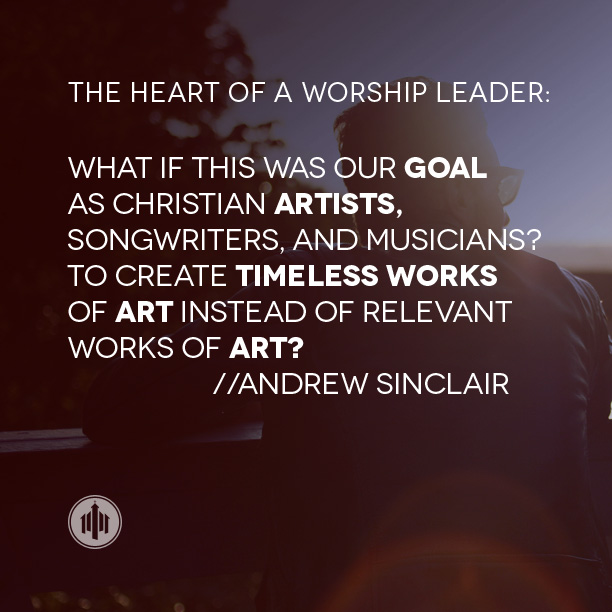What is a “Mimic”? Mimic, by definition means to; Imitate (someone or their actions or words), typically to entertain or to ridicule; A person skilled in imitating the voice, mannerisms, or movements of others in an entertaining way. Since we were kids sitting in Sunday school, we have been taught to be “Imitators’. Imitators of Christ, that is. Paul states in 1 Corinthians 11:1 – “Be imitators of Me, as I am of Christ.” and in 1 Thessalonians 1:6 – “You became imitators of us and of the Lord, in spite of severe suffering, for you welcomed the message with the joy given by the Holy Spirit.”
These are the bread and butter verses on why we should be imitators of Christ. Being an imitator of Christ is a beautiful thing. Even if you are not a Christian, you would agree that if everyone acted more like Jesus Christ, the world would be a better
place. This call towards being holy and righteous is an amazing practice that every Christian should regularly exercise. Unfortunately, we as Christians have blanketed and confused this mindset in other areas of the church.
We have become imitators of our culture instead of Christ. We have become imitators in areas of creativity, areas of being artists, musicians, and implementing our gifts and talents. Not being imitators of Christ, but being imitators in what is relevant, popular, and culturally “trendy” is now the common practice.
Relevant
I despise the word. This word alone has been the biggest killer of creativity and imagination in the Church. We hear “relevant” in every prayer meeting, every conference, and on every pulpit. We even publish “relevant” Christian articles about music, media and key talking points on social issues, trends in our culture and our society. Not to mention, how it relates to Christian millennial. The sole purpose of the “relevancy movement” focuses on selling the idea that church is actually cool to the millennial generation. Most people mistake this simple word as being just a word. In reality, the word “relevant” is an action. To be relevant is; “Having a bearing on or connection with the matter at hand; Meaningful or purposeful in current society or culture.”
We as Christians have taken the word RELEVANT and turned it on its head and transformed it into the following questions:
- What is the secular world using to entertain or influence young people?
- How can we use that “tool” or “influence” to reach young people?
- How can we use this new trend or style for a younger audience to think church is
cool?
These represent only a few examples. I’m sure you could think of more. Yes, using original ideas in church to promote the “winning of souls” is a noble cause in the aggressive attempt to justify relevance. The only problem is that Jesus wasn’t considered relevant when it came to “current society”. For example, when He turned the water into wine. The best wine was traditionally served at the beginning of a wedding. Jesus chose to save the best for last. Jesus was revolutionary. Jesus wasn’t teaching the same parables as the other “holy” men of the time. Jesus certainly wasn’t stealing miracle techniques from other prophets. Jesus wasn’t looking at anyone else except God for the direction of how he was going to change the world. Jesus was using tools never used before to reach the lost, and it worked. Thousands of years later, Jesus is still talked about. His miracles still shared. His parables continue to be retold. So if your argument to being relevant is to save souls, sorry, but Jesus proved you wrong on that one. Being “Relevant” means becoming something that you’re not, in the hope that people will find Christ’s love through a fake version of you.
We Mimic The Wrong Things
Doesn’t make sense does it? God loves creativity. We are talking about a deity that created an ever-expanding universe. Oceans created so vast and deep that less than 5% of it has ever been explored. A God who sat with composers. He anointed and guided them during the Baroque era to help create some of the most intricate compositions in history. Compositions so vivid and amazing, that it dictated the direction of music for not only that era, but also for the next. Wouldn’t it be crazy if Christian musicians and songwriters stopped looking to Kanye or Mumford for their next inspiration but instead looked to God to be inspired? Do we really believe that God can’t inspire us to write music that will be in style? Christians held an ear towards God in the Baroque era and made the secular world mimic their style. God loves creativity and God has called us to be creative. In Psalms 40:3 it says – “He has given me a new song to sing, a hymn of praise to our God. Many will see what he has done and be amazed. They will put their trust in the Lord.” Even though we have been called to create, we rarely create anything truly new. The verse Romans 12:2 fits perfectly into context here- “Don’t copy the behavior and customs of this world, but let God transform you into a new person by changing the way you think. Then you will learn to know God’s will for you, which is good and pleasing and perfect.”
 We as Christians mimic for many reasons. The main reason is to be relevant. (I’ve already shared my disgust with the word relevant and its evolution in the church so we’ll just let that one die with this verse again. Romans 12:2.) There are many other personal reasons why we as humans mimic. Not just as Christians, but as humans. This isn’t a problem specifically concentrated to the church (although it is an unmistakably large mindset in the church). It is a culturally- centered mindset. Living in Los Angeles you hear it all the time, “If you just do this, dress like that, talk like this, mingle like that, sound like this, record like that, dance like this, party like that, then you’ll finally make it”. We mimic because we all want to be somebody. What easier way to be somebody, then to transform into the individual who possesses what you so desperately want. We mimic out of an overwhelming pursuit of being known and acknowledged. What constantly amazes me is that Christian artists don’t recognize that they have already been discovered. That God already knows them. That desperate desire of “being known” is actually a prideful endeavor. The master of the universe knows you. Why do you care if some teenager in a Nebraska basement knows you or your music?
We as Christians mimic for many reasons. The main reason is to be relevant. (I’ve already shared my disgust with the word relevant and its evolution in the church so we’ll just let that one die with this verse again. Romans 12:2.) There are many other personal reasons why we as humans mimic. Not just as Christians, but as humans. This isn’t a problem specifically concentrated to the church (although it is an unmistakably large mindset in the church). It is a culturally- centered mindset. Living in Los Angeles you hear it all the time, “If you just do this, dress like that, talk like this, mingle like that, sound like this, record like that, dance like this, party like that, then you’ll finally make it”. We mimic because we all want to be somebody. What easier way to be somebody, then to transform into the individual who possesses what you so desperately want. We mimic out of an overwhelming pursuit of being known and acknowledged. What constantly amazes me is that Christian artists don’t recognize that they have already been discovered. That God already knows them. That desperate desire of “being known” is actually a prideful endeavor. The master of the universe knows you. Why do you care if some teenager in a Nebraska basement knows you or your music?
We Are Doing It All Wrong
Due to the mimicry that we create for the wrong reasons, we tend to experience personal gain instead of contributing to God’s gain. Through mimicry, we rob God of His glory. Through mimicry, we never truly worship because we truly never listen. To worship is to be obedient. Obedience is, in fact, the greatest form of worship. If we are all called to worship then we are all called to obey. God says to create a “New Song” in Psalms 96:1. If we’re just copying the musical style of others, including their heart and the influences that motivated them, could it be that we’re never fully finding the sound and the purpose that God has put inside each and every one of our hearts? We rob God of sincere worship through mimicry and we rob ourselves.
Trying to be “In Style” isn’t a scapegoat or justification for mimicry either. Jesus and his disciples weren’t really into being in style. Jesus really didn’t care. If he did, he would’ve dressed like a Pharisee. Sometimes being the true person God called you to be, and to create what He’s whispering in your ear to create, won’t be in style. C.S. Lewis wasn’t very popular when he was alive. You can’t get through a daily newsfeed on Twitter without seeing one of his quotes now. Johann Sebastian Bach was known as a talented organist, not as a composer, until after his death. Yet his orchestrations are taught in every music school around the world. His works constantly performed to perfection out of respect to his supernatural creativity. He gained that creativity while working as a music minister for the local Lutheran church. Through their obedience to God, Christian lives and non-Christian lives have both been enriched and a huge contributing factor to the overall educational experience. El Greco (Domenikos Theotokopoulos) was a painter who took a new style of painting in the roman art community in the 16th century. El Greco’s works were not viewed as “masterpieces” until 250 years later. El Greco was ridiculed his entire life for his work. He is now considered a genius in the art world. Internationally, artists study his work and artistic techniques that were used to create timeless works. What if this was our goal as Christian artists, songwriters, and musicians? To create timeless works of art, instead of relevant works of art? Songs that aged with beauty like the songs in our hymn books, instead of songs that are only used as sing-alongs for a few months and then forgotten in the bottomless abyss that is the internet.




 Operating in Humility
Operating in Humility
Andrew,
Love your words. I love the truth that you bring out in the need to create that which flows from who we all are as individuals. I believe that is God’s call on each human being: to be who He created them to be.
I am not sure that I am totally tracking with your grain against “relevancy”. And before I go any further, I am by no means stating my way is right and you are wrong. I am simply engaging in healthy conversation as a fellow lead worshipper in order to grow in my own understanding. I completely agree that many churches today, and Christians, have lost identity in the constant pursuit of “relevant” teaching or music or videos or whatever. And that we need to be careful of. However, I would argue that Jesus was the most “relevant” person to ever walk the earth. His parables, for instance, were spoken in such a way that his audience would know and understand exactly what he was talking about. He used references to Samaritans, farmers, shepherds, and money in order to be relevant to his audience. Now he spoke out in very radical and unique ways, but it was in a language and context that was understandable to them. When Luther and Calvin were writing hymns and songs that are considered timeless today, I would state that their goal was to speak to their communities in language that was understandable to them. They didn’t set out to write songs that would be sung to the end of the ages. If that were the case, they would have written maybe a few hundred and stopped. But they wrote THOUSANDS. All to continue to speak in relevant terms to their shifting and evolving communities.
I see timeless works of art as those that were so ridiculously relevant to that time that people remembered and preserved them.
Again, I love the heart you bring out in the need to stay unique and continue to lead culture and not just bend to it. It’s sad that churches have sunken to just following and not leading our culture. I believe we have the ability to reverse that. Call it being uber relevant, or call it being radical. I believe this is something the church needs to continue to address and grow in awareness of.
Hi Quentin. May I provide a response? I think that Andrew is not harping on the idea of relevancy itself but rather has a beef with what us in the church have made out of relevancy. We moved the idea of relevant from being all things to all people (1 Corinthians 9:19-23) to making sure we wear the coolest skinny jeans on Sundays. Relevancy has no morphed into everybody falling in line simply for the sake of perceived effectiveness in and amongst out churches. The big problem is that this race towards being relevant in our communities and culture that we now worship relativity. Take myself, I am a worship leader who has went through the hiring process quite a bit in the last couple years as I was finishing up college. So many churches will only look at you if you have the look, play the right stuff, have a good enough stage presence, and can “relate” to people. In doing this, so many churches have shown that they are worshiping being relevant more than being God fearing disciples. Yes, the works of art throughout history were relevant to the people they served but not through the purpose of being relevant. They were done simply to express the deep worship of their hearts through the avenue that God had given them. We do things simply for the sake of relevance and not worship. I think that right there is where Andrew was coming from when you peel back the layers.